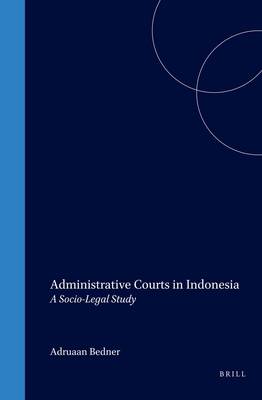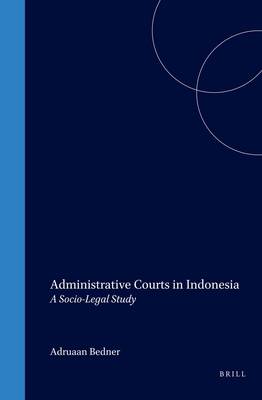
- Afhalen na 1 uur in een winkel met voorraad
- Gratis thuislevering in België vanaf € 30
- Ruim aanbod met 7 miljoen producten
- Afhalen na 1 uur in een winkel met voorraad
- Gratis thuislevering in België vanaf € 30
- Ruim aanbod met 7 miljoen producten
Zoeken
Omschrijving
In 1991 Indonesia introduced a system of administrative courts that was to contribute to establishing the rule of law in Indonesia and to provide recourse for citizens against unlawful administrative behaviour. This book evaluates the performance of the administrative court system. It explains why the courts were established in spite of the Indonesian state's authoritarian nature, and why and to what extent the system is a Dutch legal transplant. It analyses the jurisdictionary powers of the courts and how the courts have used them. It then proceeds to explain the unbalanced nature of the record presented, by analysing factors inside and outside the administrative court organisation which influence its performance. These include budgetary deficits, lack of training opportunities, career manipulation, corruption, lack of government support, and many other non-legal issues. Finally, the author provides a number of recommendations for change, many of which may also be of use to other developing countries.
Specificaties
Betrokkenen
- Auteur(s):
- Uitgeverij:
Inhoud
- Aantal bladzijden:
- 316
- Taal:
- Engels
- Reeks:
- Reeksnummer:
- nr. 6
Eigenschappen
- Productcode (EAN):
- 9789041116338
- Verschijningsdatum:
- 1/06/2001
- Uitvoering:
- Hardcover
- Formaat:
- Genaaid
- Afmetingen:
- 165 mm x 244 mm
- Gewicht:
- 625 g

Alleen bij Standaard Boekhandel
+ 1028 punten op je klantenkaart van Standaard Boekhandel
Beoordelingen
We publiceren alleen reviews die voldoen aan de voorwaarden voor reviews. Bekijk onze voorwaarden voor reviews.








